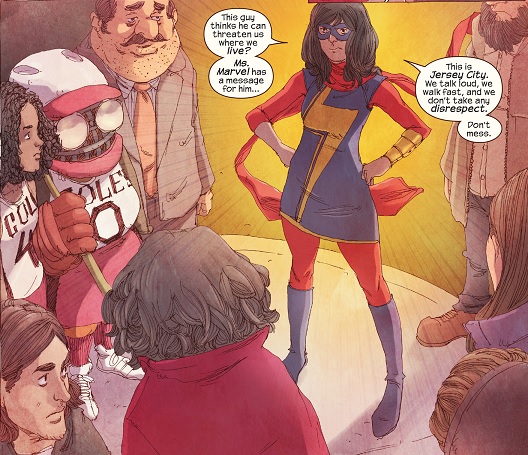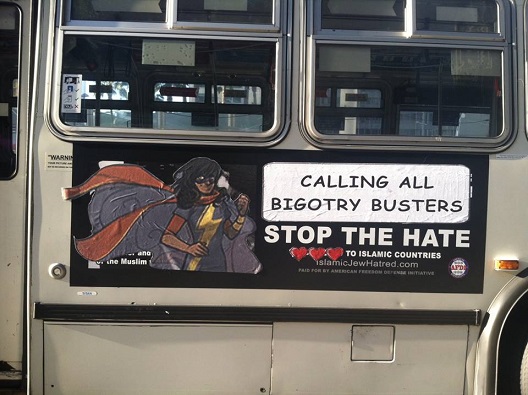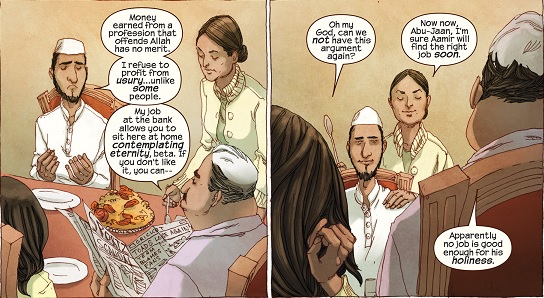
I already looked at Ms Marvel back in February:
Put it all together and you have a comic that is a decent, well crafted superhero comic that puts its focus firmly on what Marvel has always done better than anybody else, showing their heroes’ complicated home lifes inbetween the battle royales. But the main significance of Ms. Marvel is who she is and that Marvel is comfortable publishing a Muslim written comic starring a Muslim superhero, that’s respectable about the culture Kamala Khan comes from and represents, but not afraid to show conflict either. It doesn’t devolve into cliches about oppression and Islam and all that while still showing a teenager chafing at the rules laid on her by authority figures — parents, teachers, religious leaders. It is essential Marvel teen hero stuff, reinvented for the 21st century.
If you don’t mind classifying a superhero comic as science fiction, this is the best of the lot, a 21st reinvention of Spider-Man and the Marvel teen hero. Remember, the original Marvel series from Fantastic Four #1 onwards were rooted in a spirit of rebellion, from the moment Reed set out to steal that moon rocket despite the authorities warning him about it. Then of course there was Spider-Man, hated and feared by the people he saves, branded an outlaw by The Daily Bugle and still doing what is right because “with great power comes great responsibility”. Marvel heroes have always had a bit of a tense relationship with official authorities, not entirely in opposition but not blindly trusting them either, not in that godawful libertarian sense that outsiders might want to spin it as, but with a healthy dose of skepticism and faith in their own judgment.

That sort of disappeared after 2000, in the Bush era, as Marvel allowed itself to be swept up in the War on Terror hysteria and a new generation of writers bought into that semi-fascist view of superheroes as enforcers of the status quo, unfettered by due process, culminating in the hideous Civil War crossover which saw Iron Man run his own Abu Ghraib style gulag in the Negative Zone and in which Captain America lost because he didn’t know about Myspace. Suddenly every superhero was now part of SHIELD or similar paramilitary organisations and it went against everything Marvel used to stand for.

Ms. Marvel is a refutation of all that idiocy, somebody whose background gives her good reasons to be skeptical of authority even before gaining superpowers, who chafes at the restrictions her parents and culture put upon her but who also is keenly aware that her family loves and cares for her. She’s a teenager growing up and testing her boundaries, but like Peter Parker before her, she has a good head on her shoulders and knows her right from wrong.
Now for the most part I don’t think superhero comics should be nominated for the Hugos, as I consider superheroes to be a separate genre from either fantasy or science fiction. But since it has been nominated, I’ll vote for it and put it first on my ballot, as of the four entries it’s the best and most important for its own story and for what this series says about Marvel in 2014/15. G. Willow Wilson is a great writer, a non-traditional writer for Marvel and Adrian Alphona is a brilliant artist for a series whose hero has mighty morphin powers.